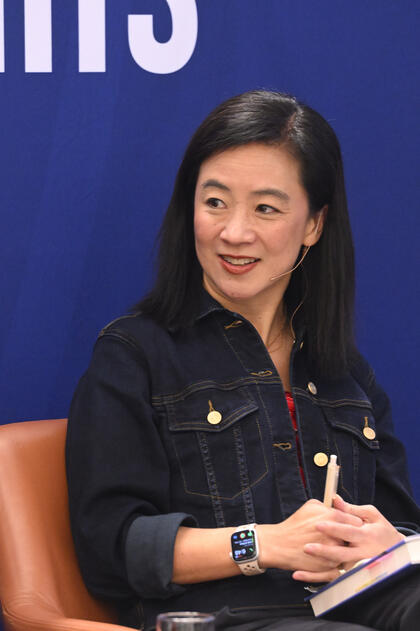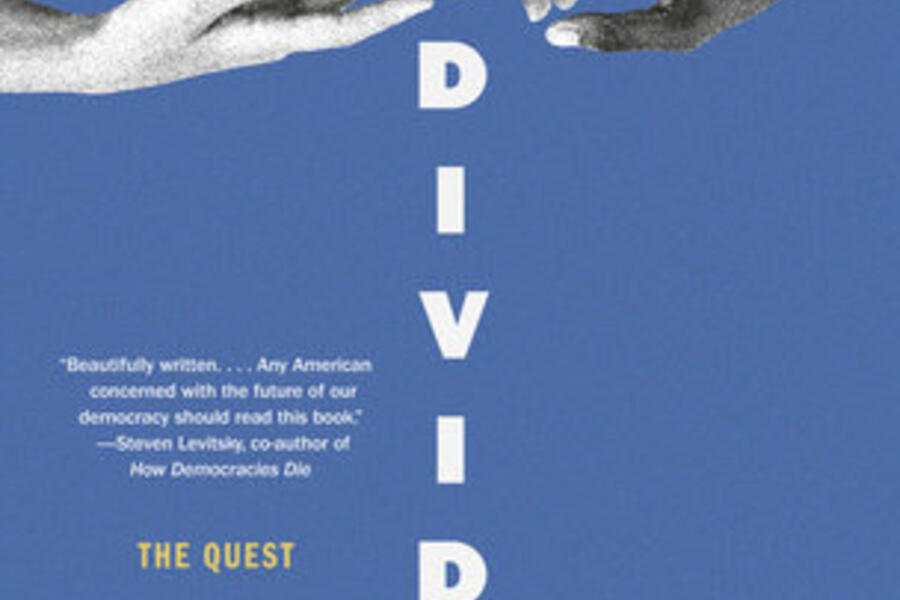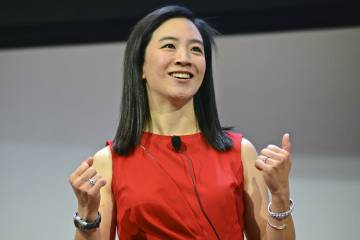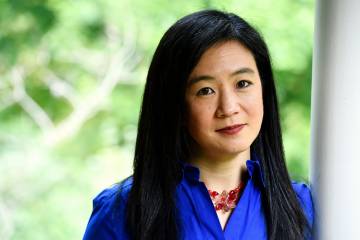When we first meet Grant, he's ventured out on a frigid Cincinnati night in 2016 for the inaugural meeting of Undivided, a new anti-racism initiative from Crossroads, which had become one of the country's fastest-growing megachurches. A 29-year-old white man, staunch Republican, and devout Christian, he introduces himself to the group by talking a bit about his relationship with his adopted baby brother, Hunt, who is Black. He shares a memory from his college days of standing in the lobby of a movie theater with his 7-year-old brother. As a young white girl approached to chat with Hunt, her parents steered her away, explaining that "we don't talk to people like that." Grant remembers he did nothing.

Image caption: Hahrie Han
Image credit: Will Kirk / Johns Hopkins University
During the group's subsequent meetings, painful scenes like this become routine. Two weeks later, for example, Grant passingly mentions that he and the now teenage Hunt go to the same (white) barber for their haircuts. Sandra, a Black woman, is appalled, pointing out to Grant that the chemical straighteners are likely burning Hunt's head.
Hahrie Han, a political science professor at Johns Hopkins who studies collective action, social movements, and democracy, relays the exchange in her new book Undivided: The Quest for Racial Solidarity in an American Church (Knopf). "Grant had never before considered that his brother might need to go to a Black barber," writes Han, who is also inaugural director of the SNF Agora Institute at Johns Hopkins. "Slowly, he realized that he might have spent a lifetime being blind to his brother's needs." The revelation, she says, marked his shift from "complacency to humility."
Han first encountered the premise for Undivided—her first book for a general audience—while researching a ballot issue approved by 62% of voters to fund universal preschool education in Cincinnati. "People kept telling me about one church that had sent a steady stream of volunteers to support the initiative," she writes in her introduction. "I had assumed [they] were left-leaning Unitarians willing to raise taxes on themselves to provide for the neediest children, not notoriously conservative white evangelicals."
Intrigued, Han set out to unfurl the genesis of Undivided, a group launched by Crossroads' Black pastor Chuck Mingo, who set out to break the predominantly white megachurch's continued silence on the "repeated killings of unarmed Black men in America." Han interviewed participants and reviewed videotapes of early meetings and then spent years attending Undivided sessions, talking with dozens of people who went through the program and gathering data on hundreds of others. The story of Undivided gelled perfectly with her work as faculty director of the P3 Research Lab, an SNF Agora initiative that aims to identify the elements that make community activism possible, probable, and powerful. "It's one of ordinary people coming together and owning the process of change," she says during a phone interview. "Undivided helped them learn to equip themselves to do the messy work of overcoming one of society's most intractable problems."
At the book's heart is a quartet balanced in both race and gender. In addition to Grant, Sandra, and Chuck, it's rounded out by Jess, a white woman raised in the Evangelical church who has overcome opioid addiction and the entrenched racism of her childhood.
During the course of the book, each struggles with what they want to put into, and get out of, Undivided. Sandra emerges a divorced woman after more closely examining the discordancies in her biracial marriage, Chuck wonders whether his expectations for what Undivided can be are unrealistic and thinks about quitting, and Jess is quick to sense that her newfound activism has alienated her family and co-workers.
And Grant? By the end, he's left his job in communications working for the state prison system—his eyes newly opened to the racial disparities inherent in the criminal justice system—for a similar one at Crossroads. He's spending time at the Black barbershop his brother now frequents and traveling with church leaders on a tour of Alabama's Civil Rights sites, videotaping footage to share with congregants. A few months earlier, on Jan. 6, 2021, while watching in horror as hordes descend on the Capitol, he observes: "If that had happened seven or 10 years ago, I would have been there."
Also see
"I wanted to be clear that anyone who engages in this type of work will experience all kinds of conflicts and backlash," Han says. "The core characters in the book are forced to make very personal choices about how to proceed while going about this work."
Undivided, too, has come a long way. It's established itself as a nonprofit independent from Crossroads and its specific anti-racism program—which emphasizes systemic change over individual atonement—has expanded into other organizations, both secular and religious, across the nation. Undivided went further than standard inclusion efforts, Han says, "by creating a scaffolding to support those taking the risk to be agents of change. Instead of being dropped off to figure out where to go after the sessions ended, they were encouraged to build relationships that kept them accountable to the work and gave them the space to understand what their peers were going through."
Posted in Politics+Society
Tagged religion, snf agora institute, racial justice, racism, democracy, hahrie han










